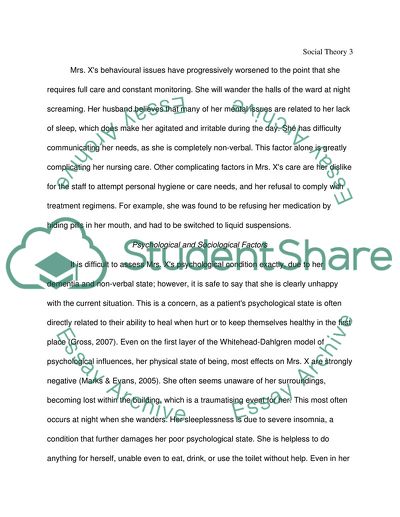Cite this document
(Alzheimer's Disease Patient and Social Theory Dissertation, n.d.)
Alzheimer's Disease Patient and Social Theory Dissertation. Retrieved from https://studentshare.org/health-sciences-medicine/1749556-this-is-a-nursing-essay-a-2500-word-essay-in-which-the-student-will-assess-the-psychology-and-soicology-influencing-a-clientpatient-and-their-care
Alzheimer's Disease Patient and Social Theory Dissertation. Retrieved from https://studentshare.org/health-sciences-medicine/1749556-this-is-a-nursing-essay-a-2500-word-essay-in-which-the-student-will-assess-the-psychology-and-soicology-influencing-a-clientpatient-and-their-care
(Alzheimer'S Disease Patient and Social Theory Dissertation)
Alzheimer'S Disease Patient and Social Theory Dissertation. https://studentshare.org/health-sciences-medicine/1749556-this-is-a-nursing-essay-a-2500-word-essay-in-which-the-student-will-assess-the-psychology-and-soicology-influencing-a-clientpatient-and-their-care.
Alzheimer'S Disease Patient and Social Theory Dissertation. https://studentshare.org/health-sciences-medicine/1749556-this-is-a-nursing-essay-a-2500-word-essay-in-which-the-student-will-assess-the-psychology-and-soicology-influencing-a-clientpatient-and-their-care.
“Alzheimer'S Disease Patient and Social Theory Dissertation”, n.d. https://studentshare.org/health-sciences-medicine/1749556-this-is-a-nursing-essay-a-2500-word-essay-in-which-the-student-will-assess-the-psychology-and-soicology-influencing-a-clientpatient-and-their-care.


